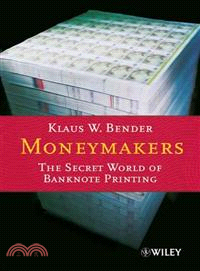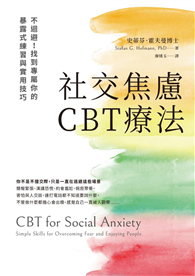| FindBook |
有 1 項符合
MONEYMAKERS的圖書 |
 |
MONEYMAKERS 作者:Klaus W. Bender 出版社:JOHN WILEY & SONS,LTD 出版日期:2006-03-03 規格: / 精裝 / 308頁 |
| 圖書館借閱 |
| 國家圖書館 | 全國圖書書目資訊網 | 國立公共資訊圖書館 | 電子書服務平台 | MetaCat 跨館整合查詢 |
| 臺北市立圖書館 | 新北市立圖書館 | 基隆市公共圖書館 | 桃園市立圖書館 | 新竹縣公共圖書館 |
| 苗栗縣立圖書館 | 臺中市立圖書館 | 彰化縣公共圖書館 | 南投縣文化局 | 雲林縣公共圖書館 |
| 嘉義縣圖書館 | 臺南市立圖書館 | 高雄市立圖書館 | 屏東縣公共圖書館 | 宜蘭縣公共圖書館 |
| 花蓮縣文化局 | 臺東縣文化處 |
|
|
- 圖書簡介
This book is about the most precious piece of paper we know, about bank-notes. Modern life would be unthinkable without them. Yet, the general public is kept very much in the dark about how they are made or who makes them. It is rarely known, for example, that despite America's technical Prowess all dollar bills are printed exclusively on German high-security printing presses using secret Swiss special inks, or that the phony 100 dollar bills, the so-called supernotes may well be printed in a top-secret printing works located just north of the white House and run by the CIA - although the US government is blaming the rogue government of North Korea for counterfeiting these bills. This book is finally lifting the veil on an industry used to absolute secrecy. It recounts the stories of a British banknote printer who, fearing the loss of his customer, informed the Egyptian secret service that the securities printing machinery the Egyptians were about to buy was of Jewish origin; of a private printer who convinced the Polish central bank that it should destroy a complete series of new, perfect banknotes which had been printed by a competitor, or of an Argentinean high-security printer who came to print genuine fake bank-notes for Zaire and Bahrain as a result of two sting operations, which smell of the Belgian and French secret service.
Moneymakers, by offering a detailed view of the banknote industry and its modus operandi, removes the industry's carefully imposed shroud of secrecy. This book has been researched over a five-year period in Europe, the USA, and Latin America. The book is based exclusively on personal Interviews and confidential mate4rial normally not accessible to outsiders. There were attempts to stop this research project.
Klaus W. Bender has peered behind the scenes of the Secret and exclusive world of the moneymakers. - Financial Times Deutschland, 2004
The errors and pitfalls at the birth of the euro make Bender's research so unnerving. - Suddeutsche Zeitung, 2004
Bender does not mince his words when he describes abuses - and there are lots of them. - Neue Zurcher Zeitung, 2004 - 作者簡介
Klaus W. Bender is an economist and journalist with 30 years experience as a foreign correspondent for the "Frankfurter Allgemeine Zeitung" (FAZ), Germany's leading daily paper. From an office in Tokyo, he has covered East Asia; from Rome, the Mediterranean basin; from Vienna, the Eastern European countries in transition. Further, in the run-up to the birth of the euro, since the 1990´s he has been investigating the situation of the banknote industry and its problems. As a result, in the year 2000 he discovered and broke the story of the misprinting of more than 300 million 100-euro bills by the officially appointed printer in Germany. The story went around the world. Additionally, he was the first journalist to report on the unfolding economic difficulties of the Bundesdruckerei in Berlin, the then highly respected state printing plant of the DM bills, as it was about to be privatized.
- 目次
Preface.
Money Magic.
1. From ›obelos‹ to ›e-cash‹.
2. Why the market for banknote printing is special.
Secret and farcical.
A market, but no market price.
Moneymakers I.
3. How Signor Giori was able to carve out a worldwide monopoly with his printing presses.
The meeting in Alexandria.
The ›Italian connection‹.
Developer, supplier and service provider in one.
Rino and Sig.
Every triangle is perfect.
Now the ›greenback‹ too.
Pay and say nothing.
Komori-sans admiration.
From Salboni to Abuja.
Warning from Munich.
Fat years, lean years.
4. Why Monsieur Amon had the same success with printing ink.
›Stradivarius‹ of printing inks.
The market climate is changing.
Family crisis.
Moneymakers II.
5. What caused De La Rue’s imperial aura to fade.
Urbi et orbi.
Beyond Malta.
The Portals debacle.
Efforts toward an additional business line.
The underestimated competition.
Faded glory.
6. How Giesecke & Devrient struggles for technological leadership.
In labore virtus - The puritan work ethic.
He wins who dares.
The crisis.
The bid for technological leadership.
7. Where hard work and politics helped Francois Charles Oberthur Fiduciaire.
›Phoenix from the ashes‹.
Challenges.
Money Losers.
8. What brought Bundesdruckerei to the brink of ruin.
Global dreams ….
… and the hard realities at home.
Rescuers or robbers?
9. How Ciccone Calcográfica wasted its fiduciary capital.
Secure printing without security.
Sole note printer in the Southern Hemisphere.
Banknotes for kleptocrats.
›Real-phony‹ Bahrain dinars.
Money Jitters.
10. Why the euro became a bonanza for moneymakers.
Friendly enemies.
Euro investment rapture.
The French patient.
The political note.
Ruining competitors with an equipment binge.
Euro bonanza.
Mistakes, mishaps, and misprints.
The unloved rescuers.
Euro quality.
11. Why there is a problem with the euro’s security.
Digifeiting, the new copying quality.
Icon in distress.
Mysterious supernote.
Euro frailties.
New euro frontiers.
12. Quo vadis euro printing?
Competition à la euro system.
Uncertain future.
Acknowledgments.
Bibliography.
Reference.
Index.
|











